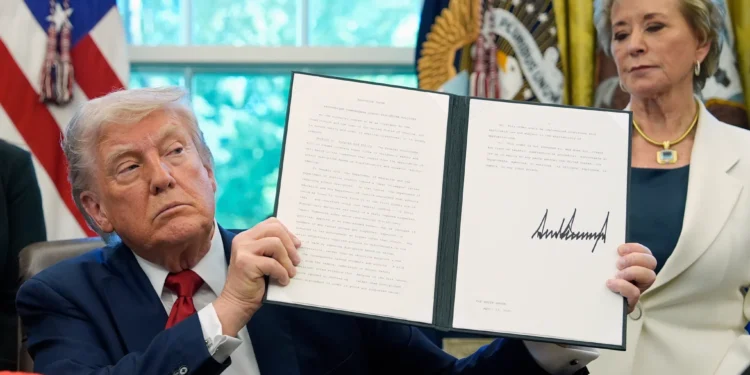Seattle has filed a federal lawsuit challenging a series of executive orders issued by former President Donald Trump that aim to curtail diversity, equity, and inclusion (DEI) initiatives across the country. City Attorney Ann Davison announced the legal action this week, arguing that the directives threaten not only local programs but the principle of self-governance itself.
At the center of the case is an estimated $370 million in federal funding tied to programs spanning public health, housing, transportation, and job training, core city services that rely on continued federal support. Seattle’s complaint contends that the executive orders, which instruct agencies to deny funding to jurisdictions that maintain DEI requirements or trainings, are unconstitutional and attempt to substitute federal political priorities for local decision-making.
The lawsuit points to the rapid pace of federal activity since Trump’s return to office, noting that 143 executive orders were signed in his first 100 days, several of which target DEI-related policies. Seattle argues that these directives exceed the authority of the executive branch and amount to coercion: a pressure campaign to force cities to dismantle efforts aimed at addressing long-standing racial and social inequities.
Speaking at City Hall on Wednesday, Davison underscored the stakes. “We are here to make sure that the values and priorities of Seattle remain in the hands of Seattle,” she said, calling the lawsuit a necessary response to what she described as federal overreach. “The federal government cannot hold our funding hostage because it disagrees with how we choose to serve our residents.”
Legally, the city is asking for two key remedies: declaratory relief to affirm the limits of executive power, and injunctive relief to block the implementation of the contested orders. The goal is to ensure that local governments retain the authority to design inclusive policies without fear of political punishment.
Davison also sought to place the case in historical context, noting that Seattle has previously challenged Trump-era policies and prevailed, in lawsuits over immigration enforcement and federal grant access. In each case, courts sided with the city’s argument that local governance should not be subject to shifting federal agendas without clear legal authority.
This new challenge reinforces that theme. Davison emphasized that while executive orders are a common tool in modern presidencies, they are not a substitute for legislation. “Even a president, whether named Trump or not, cannot rewrite the law with the stroke of a pen,” she said. “These orders are not only unlawful, they are harmful to the people and communities we serve.”
At its core, Seattle’s lawsuit is not just about one policy dispute, but about reaffirming a broader constitutional boundary: that the federal government cannot unilaterally dictate how cities design programs meant to reflect their own communities’ values. As federal funding mechanisms increasingly intersect with politically sensitive issues, the outcome of this case could shape how cities across the country navigate the tension between local governance and national politics.







